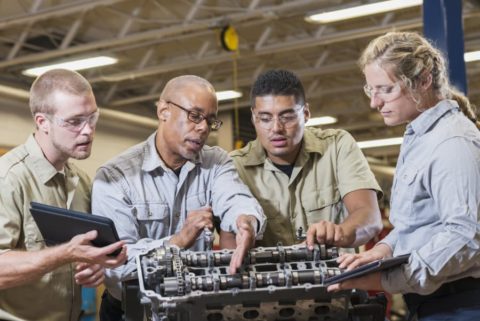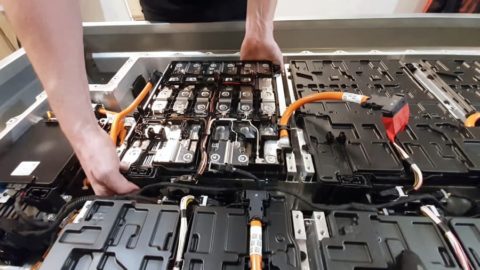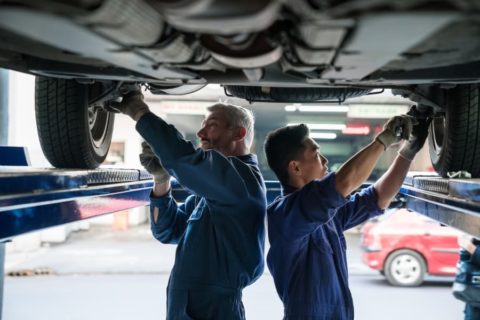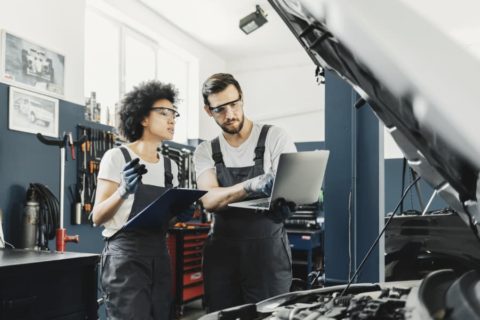How the GED Test Works
The GED test offers an alternative to a traditional high school diploma. After earning a GED, a student can go on to attend a trade school, community college, or even a four-year university. Learn more from NYADI The College of Transportation Technology, based in Jamaica, NY. What Is a GED? Some students attend four years of high school and graduate with a diploma. Their high school diploma certifies that they have met the minimum educational standards required for graduation, typically in areas such as math, science, history, and English language. Other students earn
Tips to Help Pay for Trade School
Attending technical college is a great way to obtain practical skills that can translate into a fulfilling career. Of course, like all types of higher education, technical colleges and trade schools charge tuition and fees. Student loans, grants, and scholarship programs can help to cover these educational expenses. Learn more in this post from NYADI The College of Transportation Technology, based in Jamaica, NY. Federal and State Loan Programs The U.S. Department of Education has several programs to help students offset the cost of attending trade school. Federal aid programs include: Federal Parent Loans
What Do Fleet Managers Do?
Fleet managers play an important role in the transportation industry, helping to ensure that vehicles are safe and that companies run efficiently. These professionals can work in a variety of different job environments throughout the United States. Learn more about fleet management in this blog post from NYADI The College of Transportation Technology in Jamaica, NY. What Is a Fleet Manager? A fleet manager is an automotive industry professional who is responsible for overseeing a group of vehicles on behalf of a company or organization. Their job duties typically include: Recordkeeping: A fleet
How Automotive Technician Jobs Differ When It Comes to Electric Cars
Electric cars are becoming an increasingly popular option among consumers in the United States, especially those who want to be more mindful of their environmental impact. While these vehicles may need less maintenance than a traditional car with an internal combustion engine, they still require the services of an experienced automotive technician. Learn more in this blog post from NYADI The College of Transportation Technology in Jamaica, NY. What Is an Electric Vehicle? An electric vehicle (EV) is an automobile whose motor is powered by a battery. While electric cars are not
Subsidized vs. Unsubsidized Federal Loans: Understanding Which To Borrow
Attending college is an investment: it requires a commitment of time as well as money. While technical college is typically more affordable than a four-year degree program, you’ll still need to figure out how to finance your education. If you are thinking about applying for federal student aid, you may be wondering about subsidized versus unsubsidized loans. In this post, NYADI The College of Transportation Technology in Jamaica, NY, shares details about these two popular types of federal student loans. Understanding Student Loans In general, students can apply for educational loans from
EDUCATION BEYOND HIGH SCHOOL
EDUCATION BEYOND HIGH SCHOOL How to Make it a Reality with SMART Funding?” Time: 5-7 pm; Date: Wednesday, June 22, 2022 Venue: NYADI:THE COLLEGE OF TRANSPORTATION TECHNOLOGY 178-18 Liberty Avenue, Jamaica, NY 11433
Exploring Careers in the Automotive Industry
Are you thinking about a career in the automotive industry? A college degree or certificate program is a great way to get hands-on training that will prepare you for different types of automotive jobs. Attending a technical college also provides you with a wide range of academic and career support services that help you reach your educational goals. In this post, NYADI The College of Transportation Technology in Jamaica, NY, shares some insight into automotive industry careers. Exploring Potential Automotive Jobs When you first think of a job in the automotive industry,
The Best Entry-Level Automotive Technician Jobs
If you’re considering a job in the automotive industry, there are several exciting potential career paths. Once you complete a degree or certificate program in automotive technology, you’ll be ready for many different entry-level roles as an automotive or diesel technician. Entry-level automotive technician jobs offer consistent pay, a dynamic work environment, the opportunity to learn new skills, and the chance to train under more experienced mechanics. Here, NYADI The College of Transportation Technology in Jamaica, NY, highlights some of the automotive jobs that graduates can pursue. Automotive Service Technician Automotive technicians are responsible
The Benefits of Pursuing an Automotive Tech Job
Working as an automotive technician can lead to an exciting and rewarding profession. As an automotive technician, you’ll work independently or as part of a team to test, diagnose, and repair vehicles of all makes and models. You may offer general repair services or specialize in an area like brakes, electronic systems, or heating and air conditioning. Automotive jobs can offer variety, job stability, and the opportunity to learn new skills. Find out more about these benefits from NYADI The College of Transportation Technology in Jamaica, New York. Earning Potential and
The Differences between Fleet Technician Jobs and Automotive Technician Jobs
Are you considering a career in the automotive industry? While there are many potential career paths in this growing field, one popular choice, especially for entry-level professionals, is working as a technician. These technicians use specialized skills to repair vehicles and keep them running smoothly. Here, NYADI The College of Transportation Technology discusses the differences between fleet technicians and automotive technicians. What These Professionals Do Both fleet technicians and automotive technicians provide a critical service in keeping motorists safe on the road. Both automotive and fleet technicians may work independently or as









